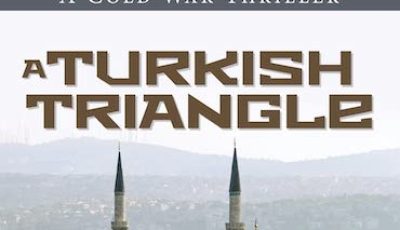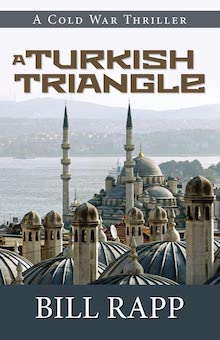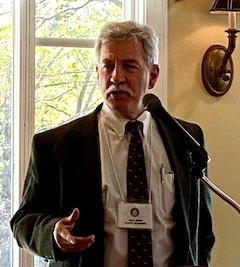

Espionage Thrillers A Turkish Triangle by Bill Rapp
 After being banished to the CIA’s training Division following his work bringing a KGB defector out of Berlin, Karl Baier is sent to Turkey to uncover the reasons behind the deaths of three Soviet assets there. And this as US-Soviet relations threaten to explode over the Cuban missile crisis. Baier eventually gets to the cause of the three deaths, but in doing so he discovers that the story does not end there. Those killings were part of a much more ambitious scheme to reorient the US-Turkish relationship, alter the balance of power in the Middle East, and undermine the US posture against the Soviet Union in Europe and the Middle East.
After being banished to the CIA’s training Division following his work bringing a KGB defector out of Berlin, Karl Baier is sent to Turkey to uncover the reasons behind the deaths of three Soviet assets there. And this as US-Soviet relations threaten to explode over the Cuban missile crisis. Baier eventually gets to the cause of the three deaths, but in doing so he discovers that the story does not end there. Those killings were part of a much more ambitious scheme to reorient the US-Turkish relationship, alter the balance of power in the Middle East, and undermine the US posture against the Soviet Union in Europe and the Middle East.
“In A TURKISH TRIANGLE the talented Bill Rapp returns to his series character, CIA officer Karl Baier, who is sent to Turkey on a dangerous mission during the hottest days of the Cold War–October, 1962–when Russian missiles were secretly installed in Cuba. This was the closest we’ve come to a nuclear war with Russia, and Bill Rapp–a CIA veteran himself with decades of service–brings these days to life with expert and detailed writing, at a time when our enemies were clear, and the chances for a world-wide war were high. Very much recommended.” – Brendan DuBois, award-winning and New York Times bestselling author
Bill Rapp recently spent some time with The Big Thrill discussing his latest thriller, A TURKISH TRIANGLE.
Can you pinpoint a moment or incident that sparked the idea for this book?
It’s tough to pinpoint a specific moment. I spent a good deal of my Agency career working on Turkish-related issues, and I often travelled to that country. I knew I would always find a time to incorporate some or much of that into one of the Cold War thrillers. Once Karl Baier’s career had moved to the point when the Cuban missile crisis erupted, I knew it was time because of the Turkish angle, of which few are aware.
A novel is such a major undertaking; there’s the writing of it, of course, then you’re spending months and months revising, polishing, and then promoting it. How did you know this was the book you wanted to spend the next couple of years on?
I knew this would become a welcome challenge because of the background I cited above. Turkey and Turkish issues became a fascinating part of my career at the Agency, and I really enjoyed delving into that again.
Were there any particular books, movies, or songs that were knocking around in your head while you were writing this one?
Interestingly, I read a lot of books on Byzantine and Ottoman history that I had purchased and set aside years ago just before I put pen to paper. I found only a few spots to insert material or insights from those periods, but I think all that reading gave me a broader sense of the impact and continued relevance of the region’s history.
When you first created your protagonist for this book, did you see an empty space in crime lit that you wanted to fill? What can you share about the inspiration for that character?
My protagonist, CIA officer Karl Baier, has been in each of the previous four Cold War novels. One of my objectives has always been to give the readers a sense of what CIA officers are really like: normal people with lives outside of work, but, admittedly, with some very specialized training and a powerful sense of mission. There is also a strong sense of espirit d’corp and camaderie in the community that is often missing in other espionage fiction.
In addition to a great read, what do you hope readers will take away from this story?
I hope that readers will come away with a more realistic appraisal of what it is CIA officers do and why they do it. And the best way to do that is not just to tell a plausible and authentic story, but to make it a truly enjoyable read as well.
What can you share about what you’re working on next?
At my publisher’s urging, I’ve decided that Karl Baier’s next assignment must take him to Vietnam. He goes there at the end of 1963, shortly after the Diem coup and assassination. That will put Baier in country as the U.S. makes its fateful shift from advice and support for South Vietnam to a full-scale Americanization of the war.
After starting his professional life as an academic historian on Modern Europe, Bill Rapp chose a less sedentary life when he moved to Washington, D.C. and began a career at the Central Intelligence Agency. He spent the next forty years working as an analyst, diplomat, and senior executive. His Cold War Spy series combines those two careers and his passions for history and the role of intelligence. “A Turkish Triangle” is the fifth book in the series. Bill also has a three-book P.I. series set outside Chicago, where he now lives with his wife, their two daughters, and their dogs, as well as a stand-alone thriller set during the fall of the Berlin Wall, which Bill experienced during his assignment there from 1989 to 1991.
To learn more about the author and his work, please visit his website.
- LAST GIRL MISSING with K.L. Murphy - July 25, 2024
- CHILD OF DUST with Yigal Zur - July 25, 2024
- THE RAVENWOOD CONSPIRACY with Michael Siverling - July 19, 2024

